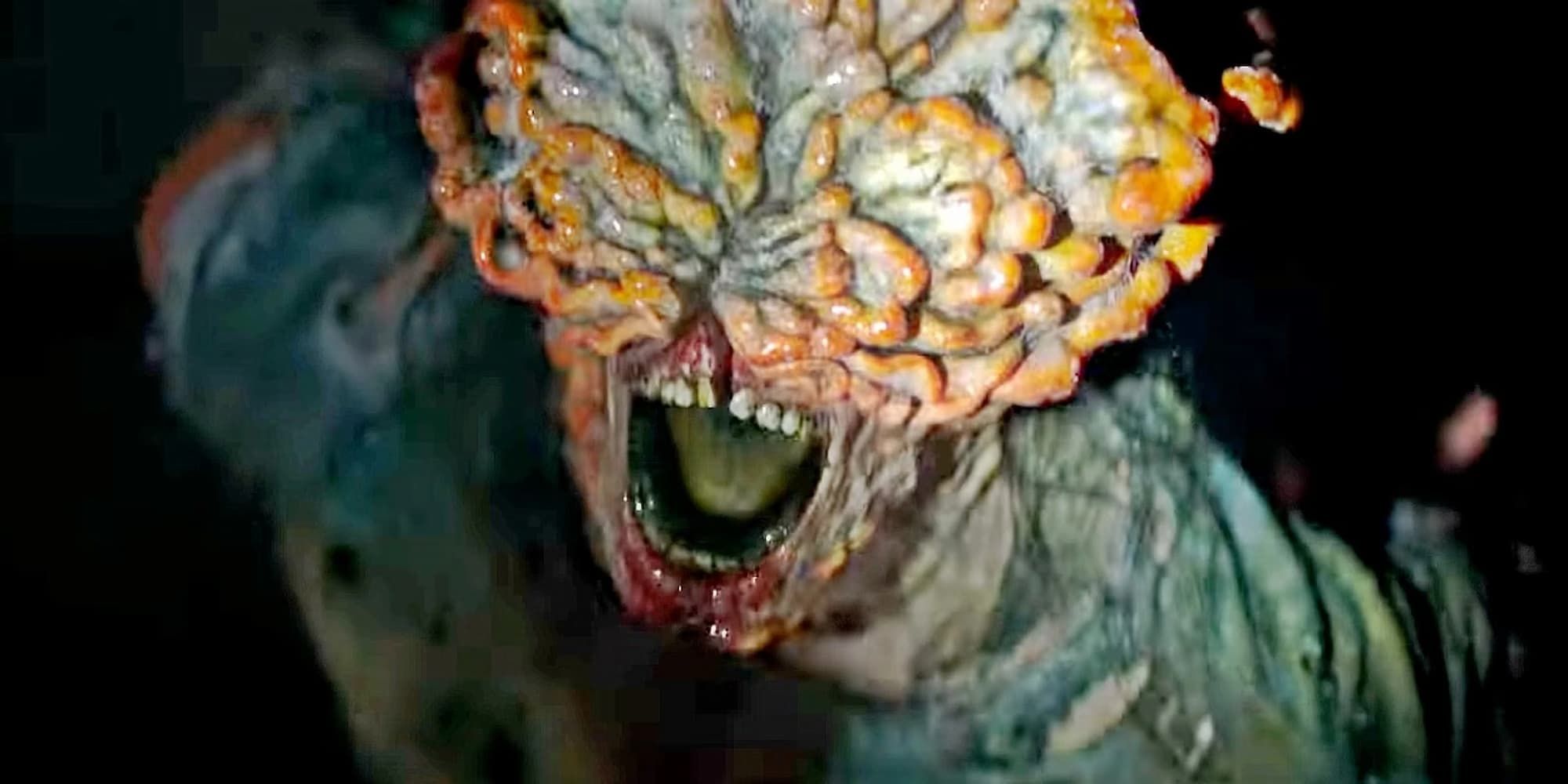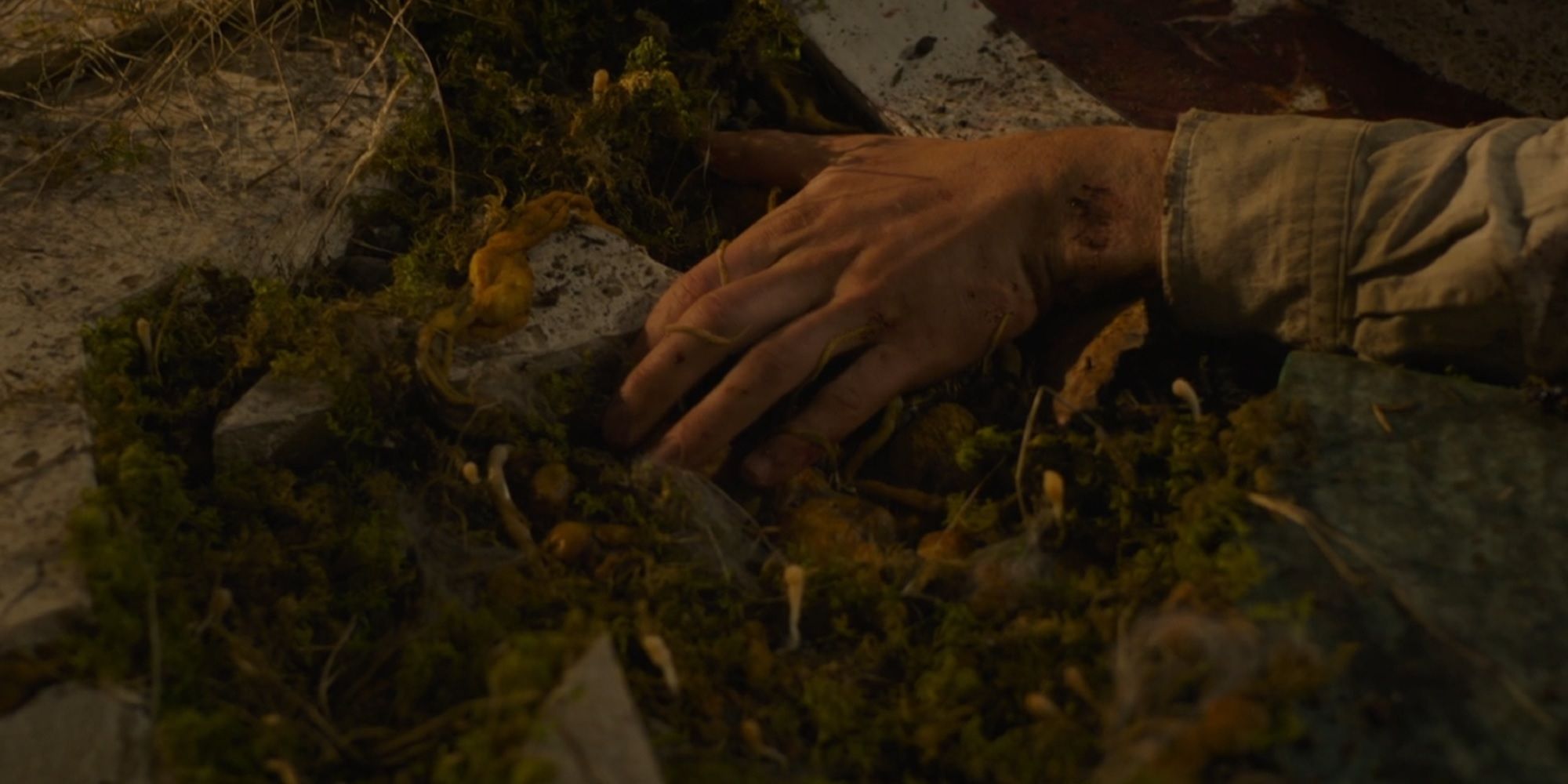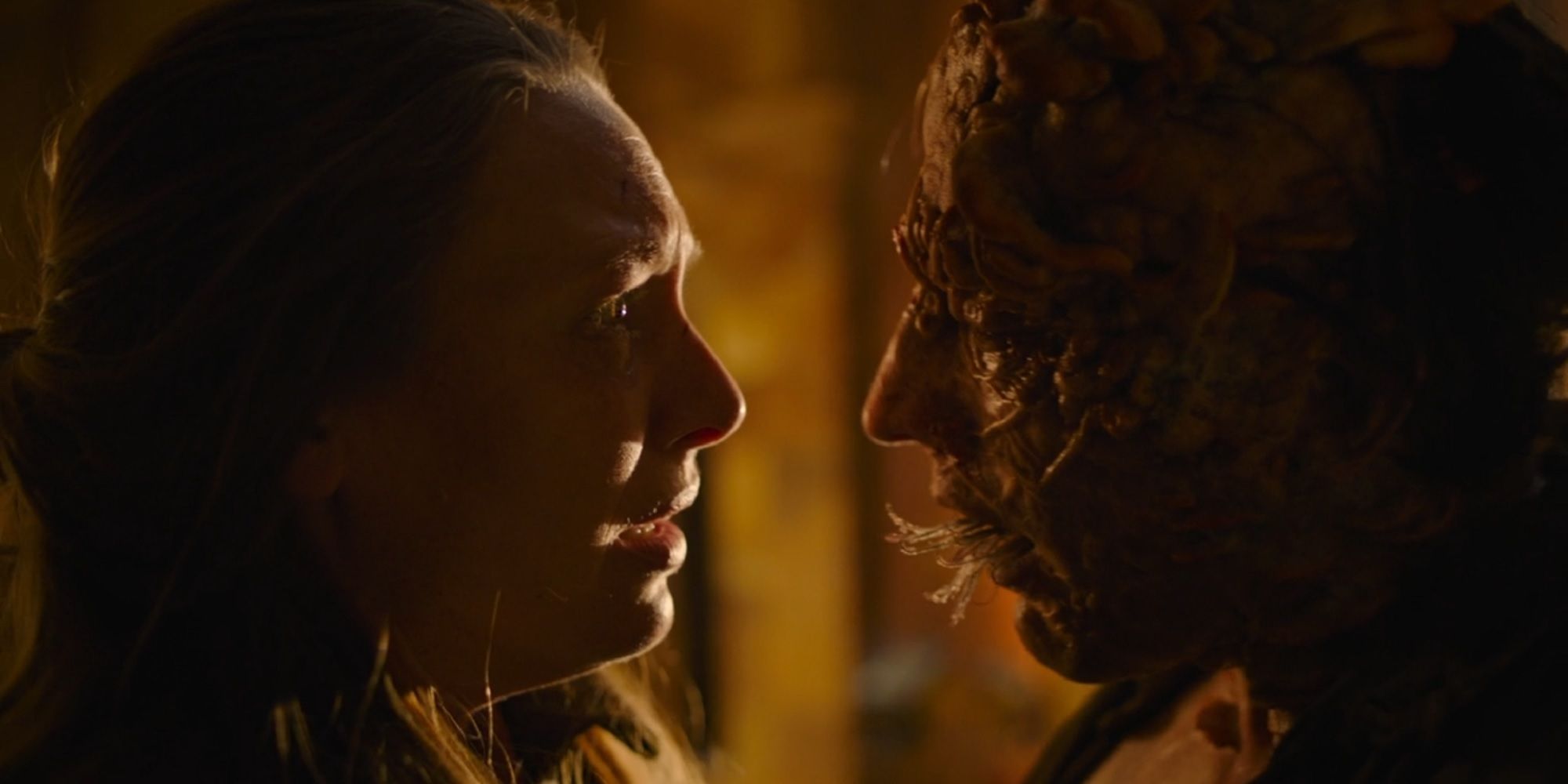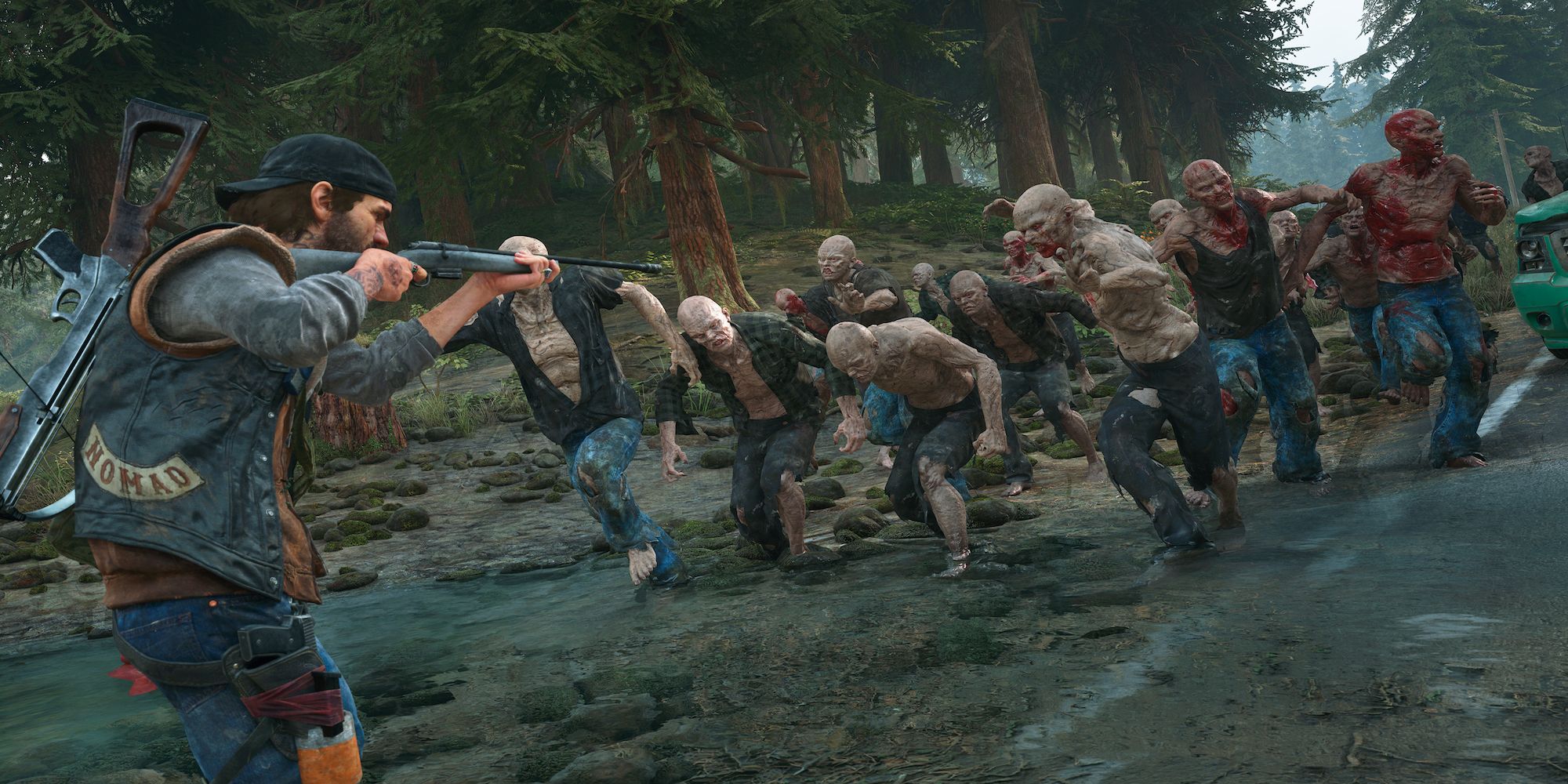HBO’s The Last of Us replaces spores with something much more dangerous.
The Last of Us has been a massive success for HBO. While the show has been a largely faithful adaptation of the game, it hasn’t been without its changes. Some changes are fairly minor, like moving the hotel scene to include Tess. Other changes are major, like excluding the threat of spores spreading infection to humans.
While some changes may cause a bit of controversy, the creators have largely expanded and enriched the lore of the setting. One of the biggest changes we’ve seen has been to the way infected function within the world of The Last of Us. Without the threat of spores, the creators needed another way to make the world even more dangerous than before, and boy have they done it!
When Joel, Tess, and Ellie are looking out from a vantage point over a group of infected, Ellie makes the observation that they seem connected. Tess takes this as a moment to teach Ellie (and audiences) something about the world. In the show, cordyceps can be connected for miles, not unlike certain real-life fungi. If you disturb a living piece of cordyceps in one area, you can alert infected to your presence from up to a mile away. Not only will the infected feel the disturbance, but they’ll also know exactly where to find you.
While this horrifying connectivity is focused on roots, you could also think of it as something of a web. We’re given a dreadful demonstration of the infected’s connectivity at the end of episode two. Joel kills an infected, disturbing the cordyceps a mile away. A horde of infected rush toward the building housing Joel, Tess, and Ellie. After being bitten, Tess ultimately gives what’s left of her life to eliminate the horde using explosives. Her final act gives Joel and Ellie a chance to escape.
The new interconnectedness of the cordyceps is a huge departure from the game, and one that could have major implications to the world of The Last of Us. In the game, the presence of a horde was something rarely seen by Joel and Ellie. The most famous instance of a horde occurs when Joel, Ellie, and Bill try to get a car battery and have to go through a schoolyard. Typically, the idea of an infected horde would be more common in other zombie games, like Days Gone.
The constant threat of an infected horde raises the stakes with every step Joel and Ellie take. The survivors will have to remain extremely vigilant on their journey. Unlike spores, this new threat cannot be mitigated by Ellie’s immunity or by Joel wearing a gas mask. Every step must be measured, which means that moments of comfort can turn bad on a dime. The slightest misstep can bring down the most dire of consequences.
Ultimately, it’s a welcome departure from the game if used interestingly. Anything that helps ratchet up the threat to your protagonists makes for good television.
My only concern is that it pushes The Last of Us further into realm of zombie show tropes. Spores were a fairly unique idea, and an airborne virus isn’t usually something seen in zombie shows (though, ironically, something we’ve become all too familiar with in reality, which could’ve been a factor in having it dropped for the show). Hordes of monsters are fairly common in something like The Walking Dead. Ultimately, we’ll have to see how the show runners make use of this new ability in coming weeks, but I’m hopeful it will lead to cinematic moments that further imbue the show with its own identity.






